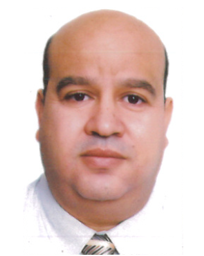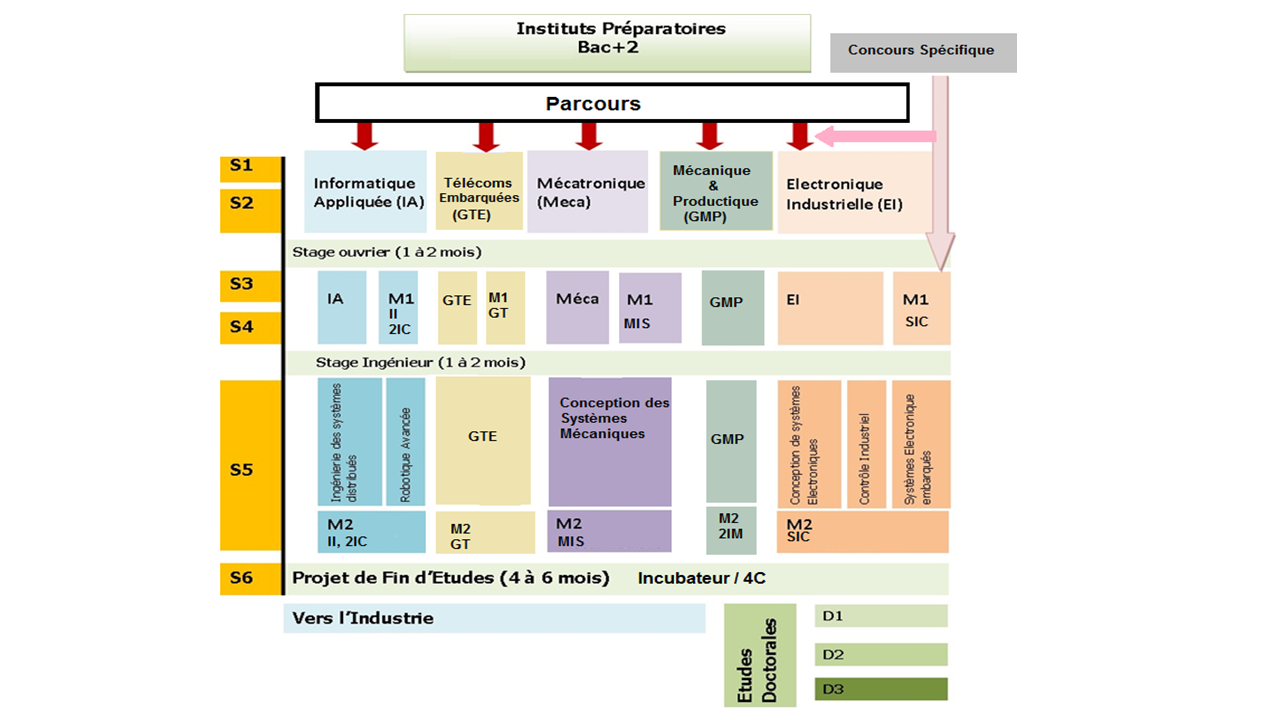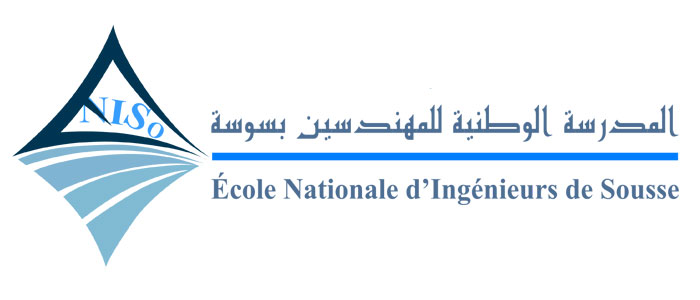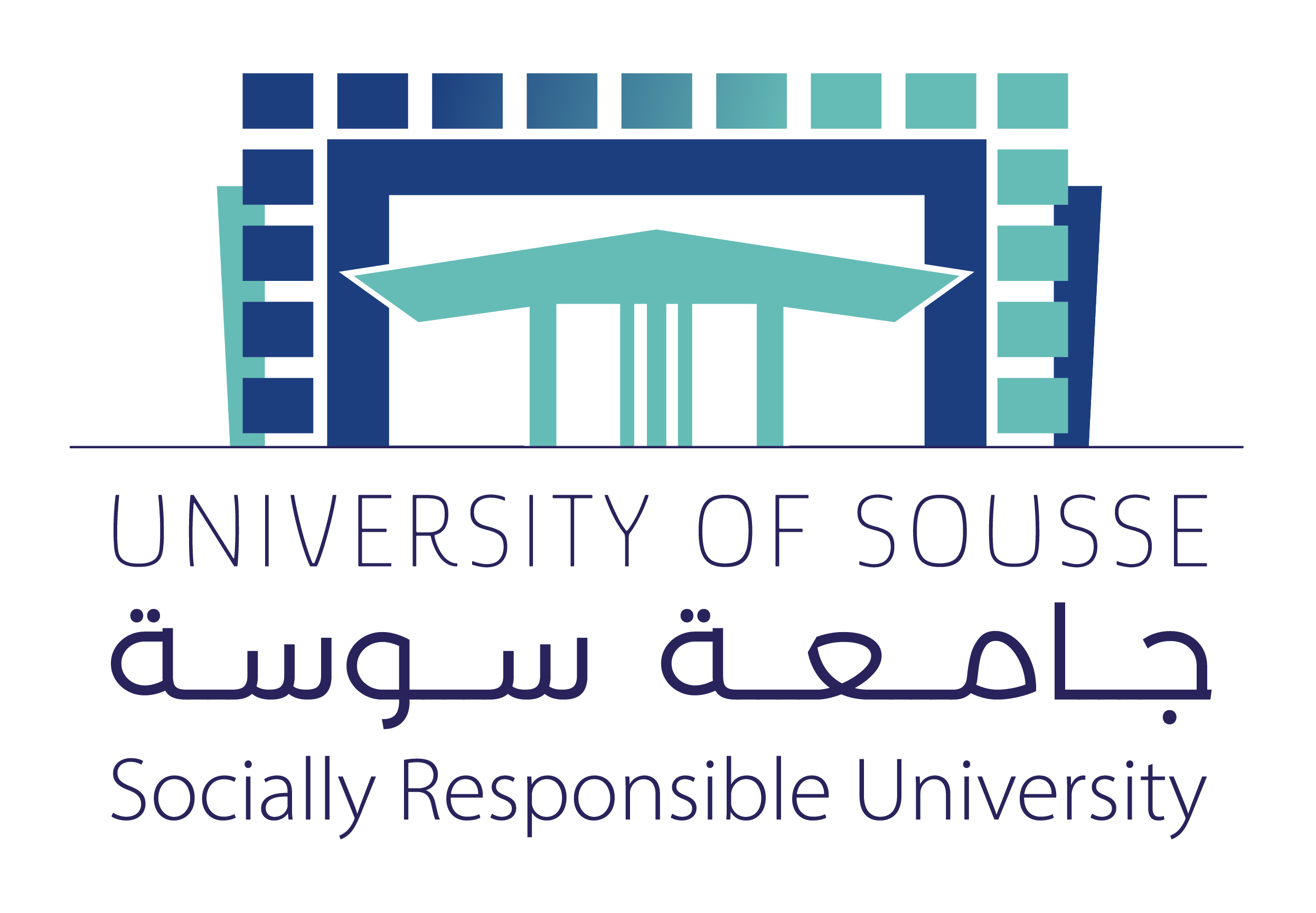ENISo offers a flexible curriculum allowing engineering students and students to access the professional, academic and especially entrepreneurial environment. Access to engineering training is mainly via the national competition for students of preparatory institutes. It can also be accessed via the specific competition based on file. From their second year, students can access Master 1 (M1) and continue in M2 to obtain a master's degree with that of engineer. The master's degree opens the horizons of research and allows access to the doctorate. From the third year, engineering students can access the school's incubator and launch a startup during their Final Studies Project.
 Director of Studies: Dr. Sabeur JEMMALI
Director of Studies: Dr. Sabeur JEMMALI

The training provided at ENISo focuses on the fundamental and multidisciplinary component. An intense and rich study regimen allows the selection of the country's future entrepreneurs and leaders. The training program lasts three years spread over five semesters of study and a final project of four to six months. In addition, there is an introductory internship in the first year and an engineering internship in the second year. In addition, the study programs follow the evolution of market needs. Although it is essential to ensure continuity and stability in the programs, it is necessary to have optional modules that allow the content of the programs to be adjusted in order to meet the new requirements of the socio-economic environment. The training covers three components: fundamental sciences, human sciences and specific training in engineering disciplines. "Soft skills" or professional skills constitute a fundamental component at ENISo. In order to train leaders and decision-makers, it is imperative to instill the entrepreneurial and leadership spirit in engineering students, as soon as they enter ENISo. Each student is asked to propose an innovative project that could eventually evolve into a startup. This project could be continued from one semester to the next. We learn to develop an innovative idea, transform it into specifications, present and defend it and finally obtain the means to carry it out. The next step is to go to the market and "sell" this innovation. In addition, practical work evolves and plays a key role in training. Basic concepts require application in order to be properly assimilated. As a result, the tools and equipment used to carry out practical work are constantly updated in order to meet the requirements of the training.

 AR
AR  FR
FR  EN
EN 



